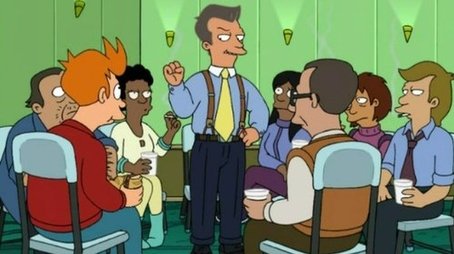
Sorry, we have not watched this yet.

With Planet Express in financial trouble, Fry nominates a flashy businessman from the 1980s to replace Professor Farnsworth as CEO of the company. That Guy goes on to sell Planet Express to Mom's Friendly Robot Corporation, putting everyone out of a job.
Sorry, we have not watched this yet.